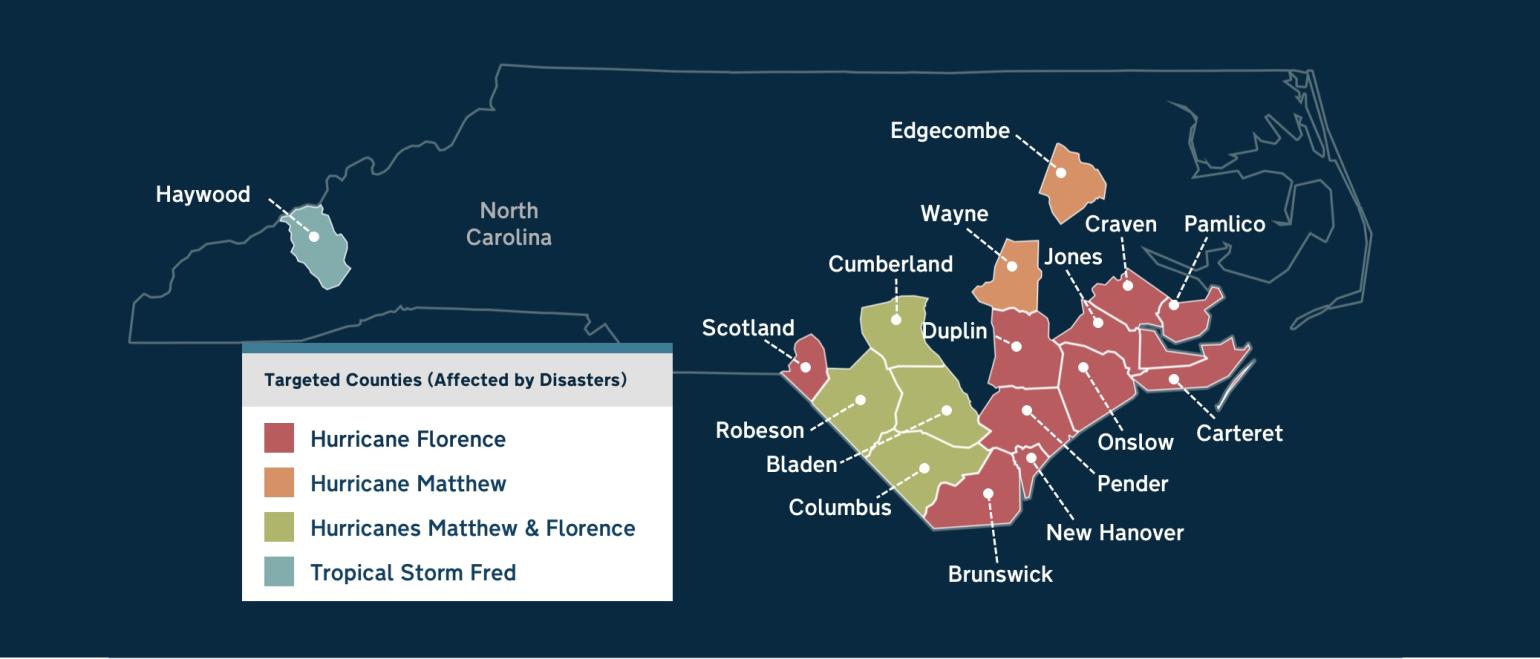About Us

Track Eastern North Carolina Hurricane Recovery
Our interactive map tracks the impacts of NCORR programs supporting long-term disaster recovery and resilience in North Carolina communities.
The North Carolina Office of Recovery and Resiliency (NCORR) was established in the aftermath of Hurricane Florence at a time when many eastern North Carolina counties had been hit hard by two devastating storms in just two years. NCORR administers U.S. Department of Housing and Urban Development (HUD) funding in two grant types, Community Development Block Grant – Disaster Recovery (CDBG-DR) funds and Community Development Block Grant – Mitigation (CDBG-MIT), aimed at making North Carolina communities safer and more resilient in future storms. Additional funding is provided through the State Disaster Recovery Acts of 2017 and 2018, the Storm Recovery Act of 2019, and North Carolina Session Law 2025-2.
Who We Serve
Helping North Carolina Rebuild
NCORR: Helping communities rebuild smarter and stronger
Learn how the North Carolina Office of Recovery and Resiliency is helping communities rebuild smarter and stronger after Hurricanes Florence and Matthew.


